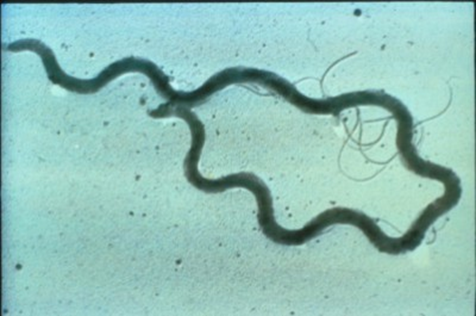Syphilis

What is Syphilis?
Syphilis is a sexually transmitted infection caused by the bacterium Treponema pallidum. It can also be transmitted from an infected mother to her unborn child during pregnancy or childbirth. Syphilis is primarily spread through sexual contact, including vaginal, anal, and oral sex. It cannot be contracted from casual contact with infected individuals or through the use of public facilities.
• Syphilis usually is acquired by sexual contact with infected mucous membranes or cutaneous lesions
• It can be acquired by nonsexual personal contact, accidental inoculation, or blood transfusion.
• Treponema pallidum spirochete
• penetrates the intact mucous membrane or a break in the cornified epithelium
• Spirochetemia occurs
The History of Syphilis
Syphilis has a fascinating history, and its origins are still a subject of debate among historians and researchers. The first recorded outbreak of syphilis in Europe occurred during the late 15th century. Some believe that Christopher Columbus’s voyages from the New World to Europe played a significant role in spreading the disease. Regardless of its origins, syphilis has been a major health concern throughout history.
Treponema pallidum spirochete
The Stages of Syphilis
Primary Syphilis
• Primary lesion develops at the site of inoculation
– Progresses from macule to papule to ulcer
– Typically painless, indurated, and has a clean base
– Highly infectious
– Heals spontaneously within 1 to 6 weeks
– 25% present with multiple lesions
• Regional lymph adenopathy: classically rubbery, painless, bilateral
• Serologic tests for syphilis may not be positive during early primary syphilis
Secondary Syphilis
• Secondary lesions occur 3 to 6 weeks after the primary chancre appears
• May persist for weeks to months
• Primary and secondary stages may overlap
• Mucocutaneous lesions most common
• Manifestations
• Rash (75%-100%)
• Lymphadenopathy (50%-86%)
• Malaise
• Mucous patches (6%-30%)
• Alopecia (5%)
Latent Syphilis
• Host suppresses the infection enough so that no lesions are clinically apparent
• Only evidence is positive serologic test for syphilis
• May occur between primary and secondary stages, between secondary relapses, and after secondary stage
• Categories:
– Early latent: <1 year duration
– Late latent: ³1 year duration
Congenital Syphilis
• T. pallidum is transmitted from a pregnant woman with syphilis to fetus
• Stillbirth, neonatal death, and infant disorders
• deafness, neurologic impairment, and bone deformities
• Fetal infection can occur during any trimester of pregnancy
– Early lesions (most common): Infants <2 years old; usually inflammatory
– Late lesions: Children >2 years old; tend to be immunologic and destructive
How is Syphilis Transmitted?
Syphilis is primarily transmitted through sexual contact. Unprotected vaginal, anal, or oral sex with an infected individual can lead to transmission. Additionally, pregnant women with syphilis can pass the infection to their unborn children during pregnancy or childbirth.
Recognizing the Symptoms of Syphilis
The symptoms of syphilis can vary depending on the stage of the infection and the individual’s immune response. Here’s what to look out for:
Syphilis in Men
Men may experience symptoms such as genital sores, swollen lymph nodes, fever, and fatigue. The rash characteristic of secondary syphilis may also be present.
Syphilis in Women
Women with syphilis may develop genital sores, fever, swollen lymph nodes, and a rash. However, the symptoms can often be milder and less noticeable than in men.
Syphilis in Pregnant Women and Infants
If left untreated, syphilis in pregnant women can lead to severe complications for both the mother and the baby. Infected infants may be born with congenital syphilis, which can cause serious health problems.
The Importance of Early Diagnosis
Early diagnosis of syphilis is crucial for effective treatment and prevention of complications. Regular STI testing, especially for individuals with multiple sexual partners or high-risk behaviors, is essential for early detection.
Testing and Diagnosis
Testing for syphilis usually involves a blood test to detect the presence of antibodies against the bacterium. Depending on the stage of the infection, additional tests, such as a spinal tap, may be necessary to evaluate the extent of the disease.
Syphilis and HIV Co-infection
Individuals with syphilis are at an increased risk of contracting HIV if exposed to the virus. Likewise, having syphilis can worsen the progression of HIV in those already infected.
Treatment Options for Syphilis
Syphilis is treatable with antibiotics, and early treatment is highly effective in curing the infection. The most commonly used antibiotic is penicillin, which is administered through injections. Alternative antibiotics may be prescribed for individuals allergic to penicillin.
Managing Allergic Reactions
If a patient is allergic to penicillin, the healthcare provider may need to explore alternative treatment options based on the severity of the allergy.
Partner Notification and Prevention
Individuals diagnosed with syphilis should notify their sexual partners, encouraging them to get tested and seek treatment if necessary. Condom use and practicing safe sex are crucial for preventing syphilis and other STIs.
Congenital Syphilis
Congenital syphilis is a preventable condition that occurs when an infected mother passes the infection to her baby during pregnancy or childbirth. Early diagnosis and treatment during pregnancy can prevent congenital syphilis and its potential complications.
Syphilis and Public Health
Syphilis remains a public health concern, and efforts to increase awareness, education, and access to testing and treatment are essential for controlling its spread.
Misconceptions and Myths
There are several misconceptions and myths surrounding syphilis that can lead to stigmatization and hinder prevention efforts. Education and accurate information dissemination are crucial in debunking these myths.
Stigma and Mental Health
The stigma associated with syphilis and other STIs can have adverse effects on mental health and well-being. Reducing stigma through open conversations and empathy is essential for supporting affected individuals.
Conclusion
Syphilis is a serious sexually transmitted infection that can have severe consequences if left untreated. Early diagnosis, regular STI testing, and practicing safe sex are crucial for prevention and control. Education, awareness, and compassionate support can help address the challenges posed by syphilis and improve public health outcomes.
FAQs
- Is syphilis curable?
- Yes, syphilis is curable with antibiotics, especially when diagnosed and treated early.
- Can syphilis be transmitted through casual contact?
- No, syphilis is primarily transmitted through sexual contact.
- Are pregnant women routinely tested for syphilis?
- Yes, routine syphilis testing during pregnancy is standard prenatal care.
- Can syphilis be completely asymptomatic?
- Yes, some individuals may not experience noticeable symptoms during the latent stage.
- Is congenital syphilis preventable?
- Yes, early diagnosis and treatment of syphilis in pregnant women can prevent congenital syphilis.
Also, Visit: Health and Wellness

1 thought on “Syphilis”
Comments are closed.